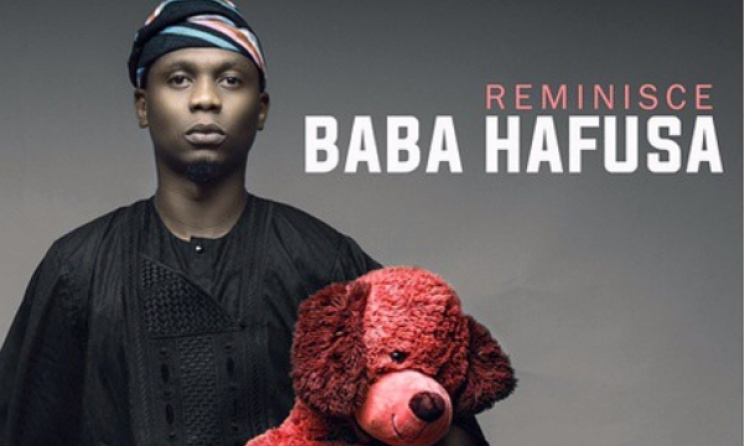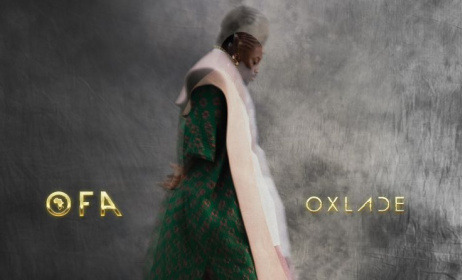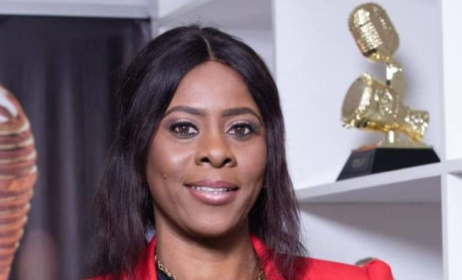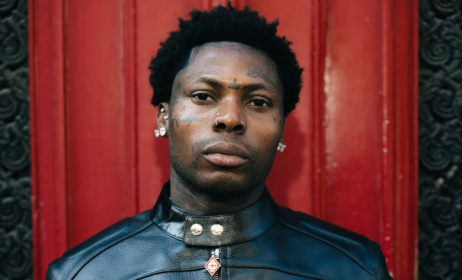Reminisce - Baba Hafusa
Artist: Reminisce
Album: Baba Hafusa
Label & Year: Edge Records, 2015
Good news: Nigerian artist Reminisce’s excellent single ‘Local Rappers’ has found an album; no longer shall it drift like flotsam online. Bad news: no other song on Baba Hafusa comes close to that song’s brilliance. It is like Reminisce was on the famed road to greatness and then instead ended up at the neighbourhood beer-parlour.
In some ways, the expression of theatrical disbelief - ‘Oh Lord, this can’t be me!’) - on ‘Local Rappers’ is the dominant mood of Reminisce’s album Baba Hafusa. And who can blame him? In the space of three albums, the rapper (christened Remilekun Safaru) has a valid claim to being the best. And true to the genre’s form, this disbelief gives way to chest thumping. “Tell me who rap pass me this year,” he asks. The answers to the question are on the song itself: Olamide and Phyno. But by putting them on the song, he has recruited the opposition. You know, ‘Keep your rivals close,’ as the Godfather didn’t quite say...
If ‘Local Rappers’, released ahead of Baba Hafusa, elevates this rather standard-issue rap album to one with cultural significance, the rest of the album places it squarely on the ground. A canny have-your-cake-and-eat-it compilation, Baba Hafusa also contains standard issue hip-hop expressions, primarily carnal -doused here and there by the odd ode to introspection. It is well served by the presence of singer Sojay who mellows Reminisce’s macho music.
Rap is for youth, or so the Americans wants us to believe. To grow up is to grow out of the genre. Dr. Dre became a mogul even as the world waits for Detox; Ice Cube went to the movies; Jay-Z stopped wearing jerseys; while Kanye, secure in rap’s pantheon, is bidding for a cubicle in pop’s palace. On the other hand, Eminem is still attacking pop culture to diminishing acclaim. And it is easy to understand: the trappings are hard to let go of. Hip-hop is a young man’s genre, and an older man’s elixir. You don’t grow up, you get bored.
Fans thinking the title Baba Hafusa - named after the Nigerian manner of calling a parent by his first child’s name - reflects a maturity that fatherhood is supposed to impose will be surprised. Reminisce has two daughters, but women are not considered any better than on his previous albums Book of Rap Stories (2012) and Alaga Ibile (2013). Reminisce’s Hafusa and Eminem’s Hailie find themselves in same position: their fathers will not change because of their existence. You see, the excuse, as used by everyone from R.Kelly to the Rolling Stones, goes thus: the singer and the man are different people. The latter put it succinctly, ‘It is the song, not the singer.’
But maybe it is the fault of listeners who have read wrongly. Despite the singer claiming tribute to the offspring, that title really is narcissistic. What we have here is akin to a father calling his daughter ‘princess’ - what is merely complimentary to the kid is self-exalting for dad, implying that he is king. Reminisce as Baba Hafusa and Reminisce as Alaga Ibile (chairman of the area) are two sides of the same coin. So on ‘Tesojue’, when Reminisce promises sexual violence to a female, he is following a long line of rappers who conveniently forget their girls as they step into the recording booth. “You will die tonight,” he says on the chorus, an overtly violent nod to what the French call ‘la petit mort’ - the little death. The song, tailor-made for clapping and dancing, is infectious. Those same girls are sure to dance to the song in the club. No one comes to hip-hop for virtue.
A curious dichotomy exists within contemporary Nigerian hip-hop. Like hip-hop elsewhere, it takes its primary influence from the US, which has gone through various eras. The Nigerian response takes most of its sound from the new school, led by Drake’s emotionalism. But its spirit is irrevocably from an earlier time. Vulnerabilities are kept out of the record as much as chauvinism is in. Pity, because besides ‘Local Rappers,’ ‘Alagbara’ (ft. Sossick), Baba Hafusa’s introspective fare has one resonant line. “I thought I’d be a superstar by 27. But God opened doors for me when I am almost 30.”
Amid the chest thumping, women and intoxicants, it is easy to forget most pop artists are young men faced with the anxiety of success - even they recognise the culture fetishizes youth. Perhaps the excess of their existence is a reaction to these pressures. Wizkid puts it best on his single ‘Wonder’: “Cool me down make I no crase. Plenty pressure man dey face…” Now that he has achieved verifiable success, let’s hope Reminisce handles its trappings much better on subsequent albums.
Watch 'Local Rappers' below:





































Comments
Log in or register to post comments